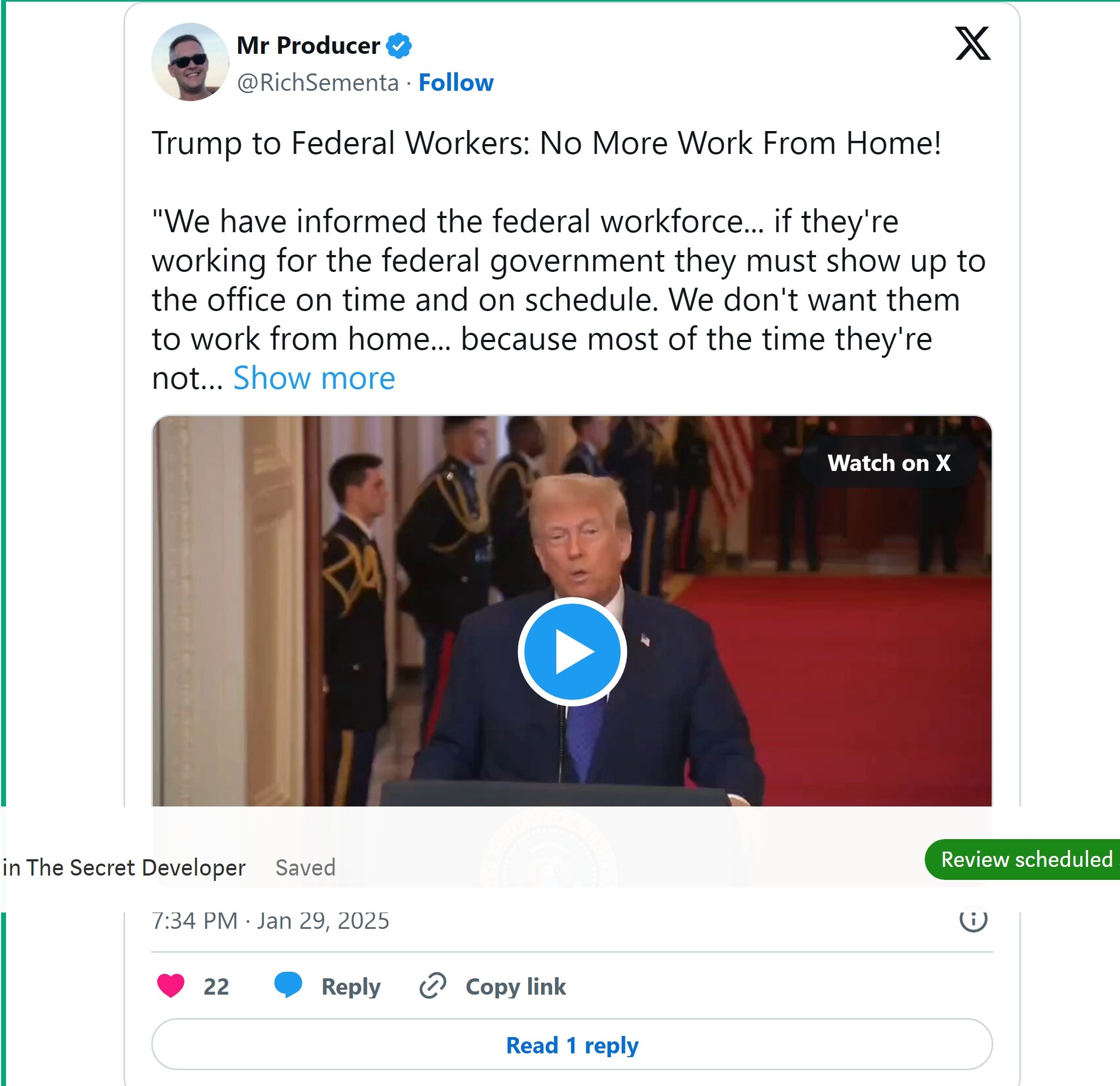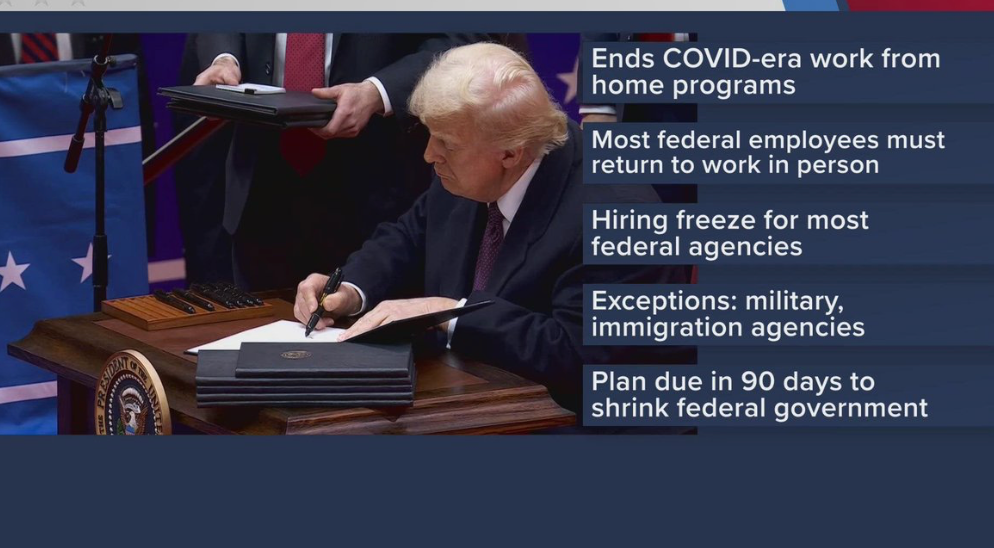Trump’s War on WFH🤯
Photo by Library of Congress on Unsplash
Yet Trump has declared that by February 6, remote-working federal employees must return to their cubicles, or, in his words, “be terminated.” His reasoning? “Most of the time they’re not working. They’re not very productive”.
This is likely to seep through into the tech arena as it is becoming accepted by many that people simply don’t work from home.
It’s clear that many bosses have never debugged a production outage from their kitchen table at 2 a.m, as the idea that software development (or any other work) can only be performed in the office is quite frankly wrong, and for software developers this is quite the disaster.
Productivity Theater vs. Actual Productivity
For software developers, remote work isn’t just a perk. It’s a necessity for deep work and deep concentration that the work requires. The myth that productivity is measured by hours spent under fluorescent lights has long been debunked, and tech companies figured this out years ago.
GitHub, Automattic, and even giants like Google have leveraged remote and hybrid models to build some of the most successful software on the planet. If you like data (and truth) the result of the studies are in. Working from home is more productive. For professions like software engineering that require deep concentration working from home can greatly boost productivity, and that’s supported my managers.
Source: https://www.shakebugs.com
Source: Shake
On the other hand, there are naysayers decrying working from home. Elon Musk has a typically outspoken approach, telling Tesla staff unwilling to return to the office full-time they can “pretend to work elsewhere”, although his treatment of software developers has been a disaster.
Image @mattchoitrader on Twitter
So here we are, with the leader of the free world suggesting that unless you’re physically in a government office (probably running Internet Explorer on a locked-down Windows machine from 2015), you’re not working.
The Tech Industry’s Remote Work Success
If software development were bound to the same archaic “butts-in-seats” mentality as the federal government, we’d still be writing code in assembly and deploying via floppy disks (and if this describes your worklife I’m sorry). The reality is, software engineers (and other delivery-based jobs) thrive in remote environments. Why might that be?
Deep Work Requires Focus
Open-plan offices are a productivity nightmare for developers. Constant interruptions, unnecessary meetings, and office noise aren’t exactly conducive to writing clean, efficient code.
Asynchronous Work Is King
Software development operates in sprints, pull requests, and code reviews. None of that requires sitting in an office pretending to look busy. The pipeline has been built to allow software developers to work anytime and anywhere, and this should be used to actually make developer’s lives better.
Talent Doesn’t Live in One Zip Code
Remote work allows companies to hire the best engineers, regardless of location. Government agencies? Well, enjoy your geographically-limited talent pool. Yelp understands and have reaped the rewards of a remote-first culture.
Source: reddit
Trump’s Fear of “Fake” Remote Workers
Trump went as far as to suggest that remote federal workers might need to prove they weren’t holding down a second job during their employment. Because, apparently, writing government code from home is just a gateway to running an Etsy shop on the side.
This paranoia highlights a fundamental misunderstanding of how knowledge work functions. Writing software isn’t like manning a retail checkout and output, isn’t measured by time-in-chair. Some of the best developers might only code for four focused hours a day but they produce more than an office drone staring at Jira for eight.
Trump did mention that some Federal employees would need to “prove” that they didn’t do another job while working from home. I wonder what proof that would be?
Sure, working two jobs can happen. I have an ex-collegue who does just that. The real problem they have is only one job is 100% remote and the other expects them in the office for two days a week. He did ask me whether I thought it a good idea, and for me it’s much too stressful (but I think he enjoys the double income).
What This Means for the Private Tech Sector
While Trump’s mandate only affects federal workers, it sets a dangerous precedent. If one of the largest employers in the country is waging war on remote work, other industries could follow suit. This shift could force software engineers back into the office en masse, despite years of evidence proving remote work increases efficiency.
The Future: Resistance or Regression?
The tech industry should take this moment as a warning. If developers don’t push back against the “return to office or else” narrative, we risk undoing years of progress toward a healthier, more flexible work culture. Software engineers have long been at the forefront of changing how work gets done — let’s not let outdated bureaucratic thinking drag us back into the stone age of office culture.
Conclusion
It’s scary times.
After all, if a government worker pushing paperwork can be replaced by someone sitting in an office, what’s stopping the same logic from being applied to software engineers?
Let me make it clear. I love working from home. Sure, I got laid off, so I don’t have a job, but I’d prefer it to be from home. Please let me work from home.






